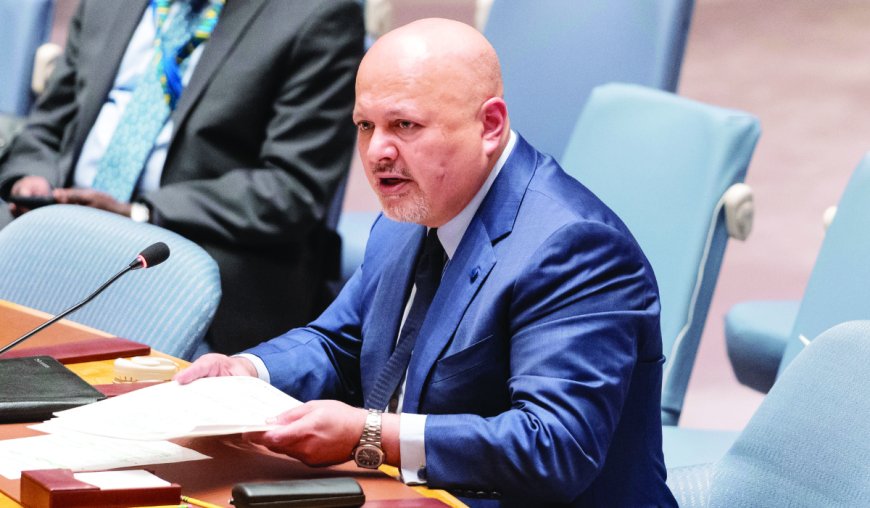ICC’s Pursuit of Arrest Warrants for Israeli and Hamas Leaders: Justice or Political Gamble?
The International Criminal Court (ICC) issued arrest warrants for several important players engaged in the Israeli-Palestinian conflict in May 2024, therefore igniting intense controversy. Targeted Hamas leaders Yehya Sinwar, Mohammed Deif, and the late Ismail Haniyeh as well as Israeli Prime Minister Benjamin Netanyahu and Defence Minister Yoav Gallant have the warrants. Reflecting the increasing brutality and human suffering on all sides of the conflict, these people face charges connected to war crimes and crimes against humanity.

The International Criminal Court (ICC) issued arrest warrants for several important players engaged in the Israeli-Palestinian conflict in May 2024, therefore igniting intense controversy. Targeted Hamas leaders Yehya Sinwar, Mohammed Deif, and the late Ismail Haniyeh as well as Israeli Prime Minister Benjamin Netanyahu and Defence Minister Yoav Gallant have the warrants. Reflecting the increasing brutality and human suffering on all sides of the conflict, these people face charges connected to war crimes and crimes against humanity.
The charges against the Hamas commanders originate from the October 7 attacks on Israel that resulted in at least 245 hostages captured and hundreds of deaths of people. Karim Khan, the ICC prosecutor, claimed that these men were mostly in charge of planning the bloodshed and hence accountable for the scope of the crimes done. Conversely, Netanyahu and Gallant are accused of war crimes connected to the policies of the Israeli government in Gaza, including the claimed use of starving as a weapon of war and targeting of civilian populations.
Not unseen, the ICC's action has attracted strong condemnation from Israel and allies, especially the United States. Declaring the court's ruling "outrageous" and accusing the ICC of equating the state of Israel with Hamas, which the United States regards as a terrorist organisation, President Joe Biden severely attacked the judgement. Biden's comments capture a more Western perspective, especially among conservatives in the United States who regularly defend Israel's war operations as justified self-defence, therefore sheltering it from global criticism.
Republican legislators have gone beyond, threatening repercussions for the ICC should it forward the case against Israeli authorities. Reflecting the view of many in Washington that the ICC is politically biassed in targeting Israel, Senator Tom Cotton called the warrants a "farce." This answer fits the long-standing denial of the United States to acknowledge the ICC's jurisdiction over its people or closest allies.
Notwithstanding this opposition, several international players have backed the ICC's decision. Emphasising that the ICC must be able to run without intimidation, Swiss UN Ambassador Pascale Baeriswyl expressed her country's great support for the court. UN Secretary-General Antonio Guterres also expressed his support for the court's decisions, therefore indicating a discrepancy between Western powers such as the United States and other countries supporting international law to apply equally to all parties.
ICC prosecutor Karim Khan has argued that the law has to be followed objectively. He underlined that justice cannot be selective and that the ICC's responsibility is to make all people answerable independent of their political ties or power. With reference to the anguish of Israeli citizens abducted by Hamas and the death of Palestinian youngsters in Gaza, Khan has underlined the human cost of the struggle on all sides. His comments embody the court's dedication to treat every conflict victim with same sympathy and to make sure international humanitarian law covers everyone.
For the ICC, this choice to seek arrest warrants against leaders of both Israel and Hamas creates a vital precedent. It shows a will to preserve justice in one of the most complicated and divisive conflicts in the planet. But the strong opposition from Israel and the United States highlights the political difficulties the court must overcome in attempting to hold influential officials responsible. Ignoring the law similarly runs the danger, as Khan has cautioned, weakening the whole framework of international justice.
The hunt of these instances by the ICC will probably challenge the international community's readiness to back a legal framework applicable to all parties, independent of their military or political might. The result of this case could have significant effects on the direction of international justice, therefore influencing how war crimes and crimes against humanity are handled in situations where geopolitical considerations are firmly ingrained.













































